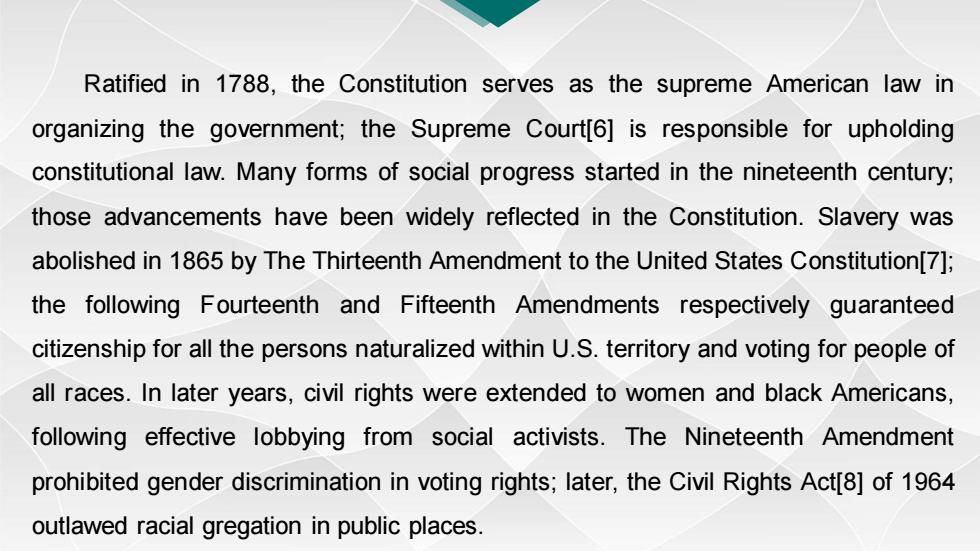正在加载图片...

Ratified in 1788,the Constitution serves as the supreme American law in organizing the government;the Supreme Court[6]is responsible for upholding constitutional law.Many forms of social progress started in the nineteenth century; those advancements have been widely reflected in the Constitution.Slavery was abolished in 1865 by The Thirteenth Amendment to the United States Constitution[7]; the following Fourteenth and Fifteenth Amendments respectively guaranteed citizenship for all the persons naturalized within U.S.territory and voting for people of all races.In later years,civil rights were extended to women and black Americans, following effective lobbying from social activists.The Nineteenth Amendment prohibited gender discrimination in voting rights;later,the Civil Rights Act[8]of 1964 outlawed racial gregation in public places. Ratified in 1788, the Constitution serves as the supreme American law in organizing the government; the Supreme Court[6] is responsible for upholding constitutional law. Many forms of social progress started in the nineteenth century; those advancements have been widely reflected in the Constitution. Slavery was abolished in 1865 by The Thirteenth Amendment to the United States Constitution[7]; the following Fourteenth and Fifteenth Amendments respectively guaranteed citizenship for all the persons naturalized within U.S. territory and voting for people of all races. In later years, civil rights were extended to women and black Americans, following effective lobbying from social activists. The Nineteenth Amendment prohibited gender discrimination in voting rights; later, the Civil Rights Act[8] of 1964 outlawed racial gregation in public places